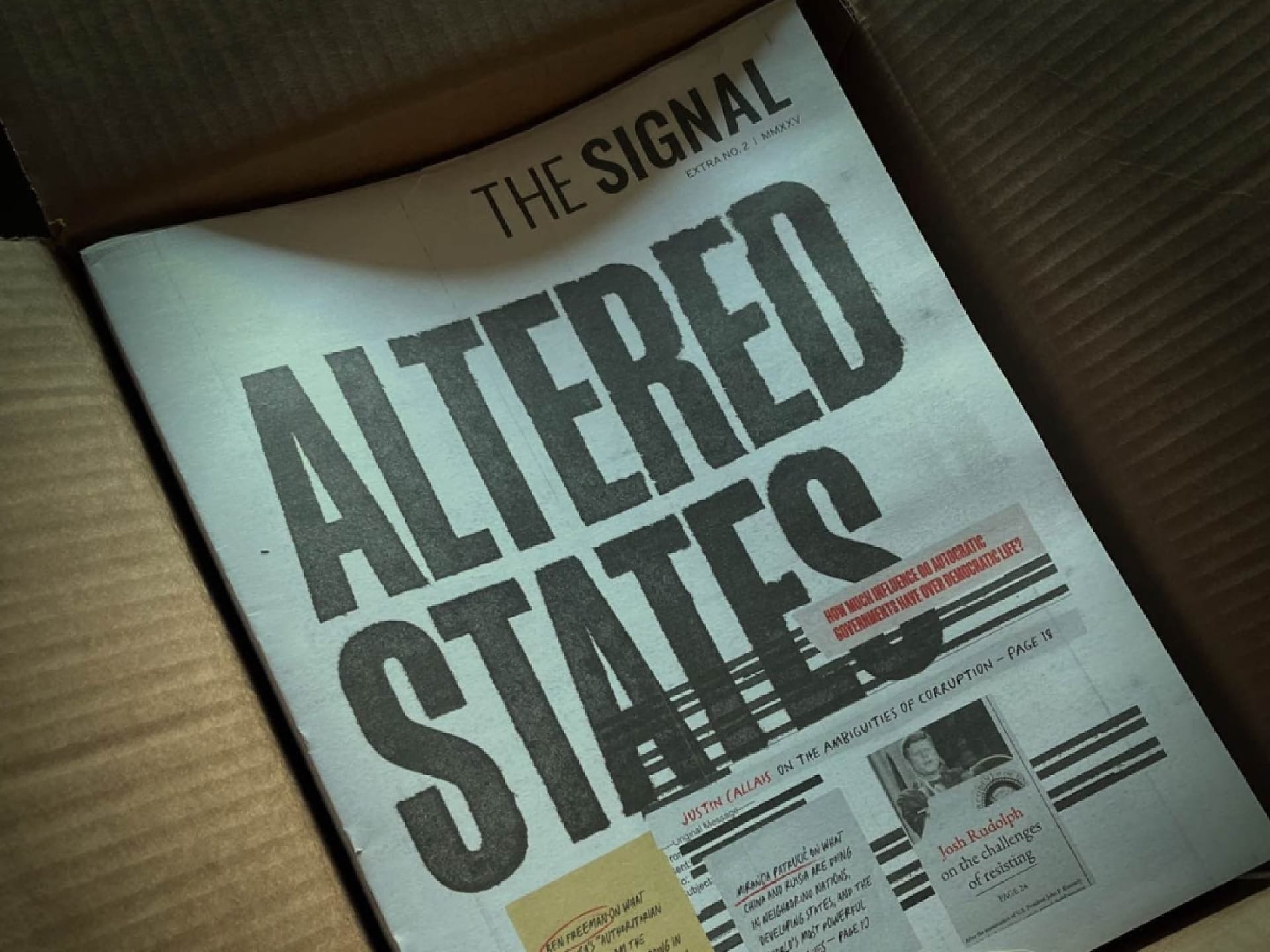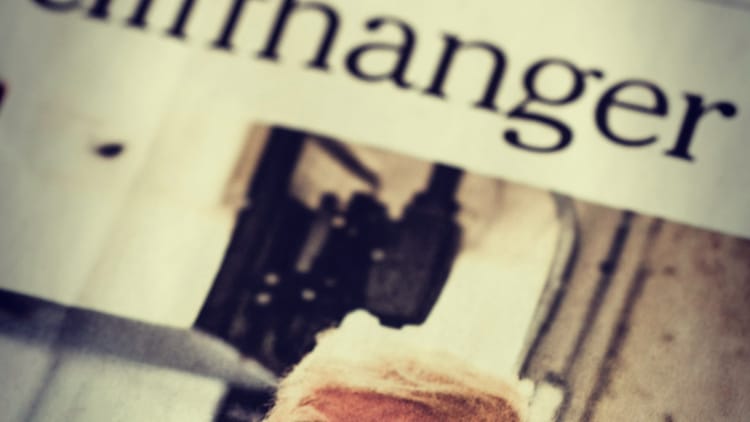No kitchen lady

Recently: Is Donald Trump really deconstructing democracy in the United States? Stephen Hanson on the American consolidation of patrimonial rule.
Today: The U.S. State Department booked fifty flights for refugees from South Africa. Three people showed up. If people don’t want to come, what’s the program for?
+ For members: How do you take in millions of refugees? Karen Jacobsen’s new book, Host Cities: How Refugees Are Transforming the World’s Urban Settings.
& New music from Makaya McRaven ...
Missing the help
The U.S. administration set a target of admitting 7,000 White South Africans as refugees by November—from a total ceiling of 7,500 slots for the entire world. According to The Washington Post, the U.S. State Department fast-tracked Afrikaners through security screening in as little as a week, a process that typically takes years. Officials bypassed the United Nations referral system—the traditional pathway for refugee resettlement—in favor of vetting conducted partly by Amerikaners, an advocacy group founded by Sam Busà, a South African woman of British descent. The administration framed the effort as rescuing victims of “reverse racism” under South Africa’s Black majority government, a characterization South African officials and some Afrikaners themselves call detached from reality.
The trouble is the Afrikaners themselves. Fewer than 400 have actually arrived through September, despite early targets reaching into the thousands. The administration initially aimed to resettle 1,000 people by early October; when that proved unrealistic, officials shifted to a new goal of getting 1,000 processed for admission. In the third week of September, State Department officials booked and paid for 50 seats on commercial flights from South Africa to the United States. Three people showed up. Some who completed medical and security screenings changed their minds about relocating. Others elected to delay their journeys to sell property and belongings.
One farmer who did make the trip illustrates the gap between the administration’s framing and the reality on the ground. Charl Kleinhaus arrived in the spring, was resettled in Buffalo, but within days moved to South Dakota for a job he’d found—relinquishing the housing assistance and other resources he was eligible to receive through the U.S. government. In an interview later shared on YouTube, Kleinhaus said the biggest challenge wasn’t persecution or danger but adjusting to American middle-class life. “There’s no kitchen lady you call to sweep the house, or clean the house, or stuff like that,” he said. “You do the work yourself.”
The State Department rejected suggestions it had failed to meet resettlement goals, saying the program operates “at record speed while upholding the highest standards.” Officials say 700 Afrikaners are ready to travel once the ongoing government shutdown ends, with “thousands more in the pipeline.” In late September, State booked 50 seats. Three people showed up. The administration is expected to announce soon that it’s slashing the refugee-admissions cap—possibly as low as 7,500—and putting new focus on people who speak English. A recent State Department report identified “free speech advocates in Europe” as another potential group for future consideration. It’s not yet clear what that means.

How much influence do dictators have over democracies? Our second limited-run print magazine, Altered States …
Currently available in the U.S.A. If you’re interested in ordering internationally, have any questions, be in touch: concierge@thesgnl.com.
Meanwhile
- Crown jewels, ticking clock. French prosecutor Laure Beccuau valued the eight Napoleonic jewels still missing from Sunday’s Louvre heist at $102 million Tuesday, adding the figure excludes historical worth. About 100 investigators are analyzing DNA left at the scene and evidence from the truck. Beccuau made an unusual public plea to the thieves: “The wrongdoers won’t earn 88 million euros if they disassemble these jewels. We can hope they’ll think about this and won’t destroy these jewels without rhyme or reason.” Art experts say the window for recovery before dismantling may already be closed
- ‘I’m sort of suing myself.’ U.S. President Donald Trump is demanding the Justice Department pay him about $230 million for federal investigations into him, according to people familiar with administrative claims filed in 2023 and 2024. The complaints—covering the Russia investigation, Mar-a-Lago search, and classified documents case—must be approved by senior officials who previously defended Trump or associates. Deputy Attorney General Todd Blanche was Trump’s lead criminal defense lawyer. Trump acknowledged the situation last week: “I’m sort of suing myself.” The Justice Department fired its top ethics adviser in July.
- Polish sabotage, Russian fingerprints. Polish authorities arrested eight people on Tuesday suspected of planning sabotage attacks—three Ukrainian nationals allegedly working for Russian intelligence. Prosecutors said suspects intended to send packages with explosives to Ukraine, designed to detonate during transport, to intimidate populations and destabilize European Union countries supporting Ukraine. Two more suspects were detained in Romania for depositing parcels with improvised devices at a Bucharest courier company. Poland’s security spokesman said authorities have detained 55 people in recent years suspected of acting on behalf of Russian intelligence.
- An assassination verdict in Slovakia. Also on Tuesday, a court in Bratislava sentenced Juraj Cintula, 72, to 21 years for shooting Prime Minister Robert Fico in May 2024. The verdict convicted him of terrorism rather than attempted murder. Cintula, a poet, shot Fico four times, later testifying he disagreed with the premier’s policies—ending Ukraine aid, canceling a corruption office. He said he wanted to harm, not kill. Fico wasn’t present but previously blamed the liberal opposition and media without evidence. His attorney said Cintula would likely appeal.
- The American vice president arrives in Jerusalem. J.D. Vance has arrived in Israel to reinforce the 12-day-old Gaza ceasefire after weekend violence. Vance said the truce was going “better than expected” but urged “patience,” declining to set deadlines for hostage returns or Hamas disarmament. “If Hamas doesn’t comply, very bad things are going to happen,” he said. U.S. officials fear Prime Minister Benjamin Netanyahu might deliberately end the ceasefire and restart the war. Two more hostage remains were transferred on Tuesday. The remains of 13 of 15 deceased hostages have been returned since the October 10 ceasefire began.
From the latest despatch
City limits
How do you take in millions of refugees? Karen Jacobsen, Host Cities: How Refugees Are Transforming the World’s Urban Settings.

Earlier this year, a group of European right-wing parties held a conference in Spain where they called for a “Reconquista,” a reference to the medieval conquest by Christian kingdoms of the Muslim-ruled Iberian Peninsula. “You were the first who rolled back Islam and restored the rich heritage of Christianity in your country,” the Netherlands’ Geert Wilders said. “That’s why we are great admirers of Spain.” Alongside Wilders were France’s Marine Le Pen, Hungary’s Viktor Orbán, and, joining remotely, this year’s Nobel Peace Prize winner, the Venezuelan opposition leader María Corina Machado.
Over the last decade, the total number of refugees in the world has more than tripled. Since the Russian invasion of Ukraine, for instance, some 6 million Ukrainians have fled to European countries, with Poland alone now hosting more than 2 million of them. For its part, Colombia has received about 2.4 million Venezuelans since 2014. At the end of 2023, over 117 million people were forcibly displaced globally, with more than 43 million of them having fled across an international border.
What can destination countries do to manage massive refugee flows like this?
Your loyal guide to a changing world.
Membership with The Signal means exclusive access to premium benefits:
- Regular profiles on the questions behind the headlines
- In-depth feature interviews with our network of specialist contributors from across America and around the world
- The despatch, our weekly current-affairs and cultural-intelligence briefing
- Early access to new products, including print extras
It also means vital support for an independent new enterprise in current-affairs journalism.
New music
‘Prime’
The jazz drummer and bandleader Makaya McRaven is on fire in his new small-combo record—with Theon Cross of the British jazz outfit Sons of Kemet and the American cornetist Ben LaMar Gay. This track is from a new EP, out October 31, called Techno Logic.





